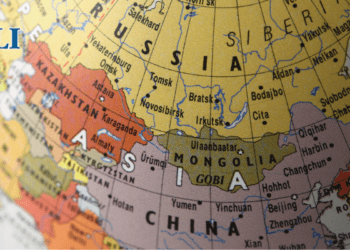 Across Europe proportional representation is sweeping the politically-marginalized into positions of power and influence. Christian Leuprecht, writing in the Globe and Mail, believes this should give second thought to Canadian Prime Minister Justin Trudeau as he prepares to follow through on his electoral reform campaign promises.
Across Europe proportional representation is sweeping the politically-marginalized into positions of power and influence. Christian Leuprecht, writing in the Globe and Mail, believes this should give second thought to Canadian Prime Minister Justin Trudeau as he prepares to follow through on his electoral reform campaign promises.
By Christian Leuprecht, March 22, 2016
“When the Gods want to punish us, they answer our prayers,” figured Oscar Wilde. The Liberal government of Prime Minister Trudeau is committed to electoral reform. Last weekend gave yet another European pause for thought.
Electoral reform in Canada tends to be propagated under the pretense of making Parliament more “representative.” What reformers really want is more representation of “their” views. Proportional representation (PR) holds out not only the spectre of greater representation of the left (more seats) but greater diversity of representation on the left (more political parties). Reformers seemingly forget that expanded depth and breadth on the left forebodes the same potential on the right.
A recent lead editorial in this newspaper on “the truth behind Donald Trump’s lies” claimed that, unlike the United States, Canada has “not developed a large, angry underclass of ‘old-stock’ voters” because “the rich and powerful can’t buy federal elections in Canada. We embrace diversity. We have universal health care, and a stronger and better-funded social safety net than the U.S. The same is true for most European countries.” But if the smug-Canadian hypothesis were true, how then to explain the “large, angry underclass of ‘old stock’ voters” that has been taking Europe by storm?
Over the weekend we got yet another reminder of the ugly underbelly of democracy, this time in Germany. The electorate in three of Germany’s 16 states went to the polls, two in the former West, one in the former East: a new party with no previous parliamentary representation garnered 15.1% of the vote in Baden-Wurttemberg, 12.6% in Rheinland-Pfalz, and an astonishing 24.2% in Sachsen-Anhalt. In its rhetoric, the Alternative fur Deutschland (AfD) has much in common with Trump: simple answers to a host of complex problems – disestablishmentarian, anti-immigrant, anti-globalization, Islamophobic, and a platform long on grievances on short on detail. It is similar in tone (although not necessarily in degree of ideological extremism) to the Front National in France (where Marine LePen stands to be a real contender for the presidency in 2017), the Vlaams Blok in Belgium, the Partij voor de Vrijheid in the Netherlands (a past governing coalition partner), Law and Justice (PiS) in Poland, Fidesz in Hungary, the True Finns, the UK Independence Party (UKIP)… All share the same electorate: older, white, often economically deprived and less educated.
The difference in outcomes has less to do with policy than with electoral systems.
Yet, there is also an important difference. In continental Europe, parties bask in right-populist support. In the United States, by contrast, the party leadership of Republican elites is scrambling: a coalition of alienated white geezers in the Northeast and South and bible thumpers in the Midwest is not enough to win. Last spring, UKIP was thought to be mowing the Conservatives’ lawn. Pollsters notwithstanding, David Cameron, much like Trudeau, was handed a solid majority.
The difference in outcomes has less to do with policy than with electoral systems. Forms of proportional representation prevail across continental Europe. By contrast, Single-Member Plurality (SMP) prevails in the UK, US, and Canada – whoever carries a plurality of the vote in a district, carries the seat. PR and SMP have opposite intended consequences: usually PR empowers ideological margins, SMP moderates them (by encouraging brokerage politics and parties). Hurdles – such as 5 per cent in Germany – are meant to keep out the ideological riff-raff. But thresholds are irrelevant when the AfD scores popular support in the teens and twenties right out of the gate. SMP would not have prevented the AfD from getting a seat here and there, but PR translates into far more seats for the AfD than would have otherwise been the case. It is proportional representation, after all.
Obviously, the rise of the AfD is a multivariate problem, including a social-democratic Chancellor whose leadership has orphaned some conservatives. However, the AfD draws not just on alienated conservative margins, but, the aforementioned electoral results replicate, on the whole political spectrum. If voter-migration patterns in Europe are any indication, contrary to common wisdom, the NDP and Liberals might fare no better under PR yet give inadvertent license to the rise of right-wing populism in Canada. Think there is no Trump constituency in Canada? Canadians voted Union Nationale and Social Credit in the past. About two-thirds think Trump would be bad for Canada. Some of the rump would vote Trump. Proportional representation risks begetting an “Alternative for Canada.” Does Canadian democracy really need to put that hypothesis to the test?
Christian Leuprecht is professor at the Royal Military College of Canada and Queen’s University, a senior fellow at the Macdonald-Laurier Institute, and currently a fellow at the Hanse-Wissenschaftskolleg in Germany.




